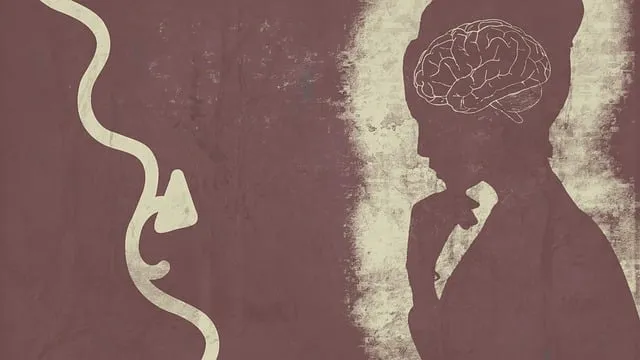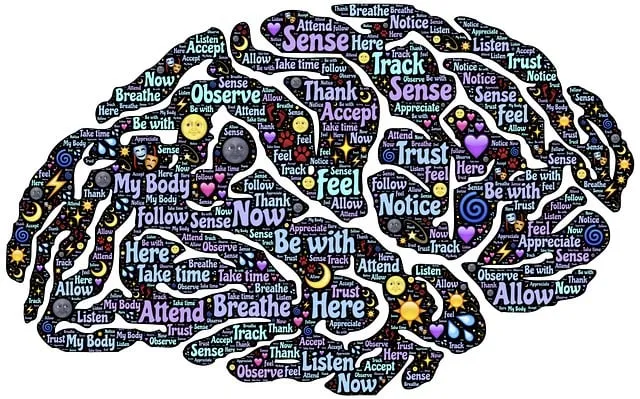The Boulder Kaiser Permanente Mental Health Access Center prioritizes accurate mental health diagnoses, addressing challenges like symptom overlap and stigma. They employ advanced assessment tools, self-care practices, and digital platforms to enhance diagnosis accuracy. Through comprehensive training, emotional intelligence development, and innovative communication strategies, the center ensures personalized, evidence-based care for each patient, revolutionizing mental healthcare in Boulder and beyond.
Mental illness diagnosis accuracy is a critical aspect of patient care, especially at comprehensive healthcare centers like Boulder Kaiser Permanente Mental Health Access Center. This article explores the urgent need for improved diagnosis accuracy, delving into current challenges faced by professionals at such facilities. We examine innovative strategies, the role of technology, and the importance of training to enhance diagnostic procedures, ultimately aiming to improve patient outcomes.
- Understanding the Need for Improved Diagnosis Accuracy at Kaiser Permanente Boulder
- Current Challenges in Mental Health Diagnosis: A Closer Look
- Innovative Strategies to Enhance Diagnostic Procedures
- The Role of Technology and Advanced Tools in Accurate Assessment
- Training and Support for Healthcare Professionals: A Cornerstone of Success
Understanding the Need for Improved Diagnosis Accuracy at Kaiser Permanente Boulder

At Kaiser Permanente Boulder, the need for improved diagnosis accuracy in mental health is more than just a goal—it’s a imperative. Given the complex nature of mental illness and the varied presentations among individuals, precise diagnoses are crucial to ensure effective treatment plans. Misdiagnosis or delayed diagnosis can lead to significant emotional distress for patients and hinder their access to appropriate care at Boulder Kaiser Permanente Mental Health Access Center.
Empathy Building Strategies, Self-Care Practices, and Stress Management techniques play a pivotal role in this endeavor. By fostering an environment of understanding and compassion among healthcare professionals, these strategies help in recognizing subtle cues and nuances that might otherwise be overlooked. Encouraging practitioners to prioritize self-care ensures they can approach each patient with clear minds and open hearts, enhancing their ability to accurately interpret symptoms and make informed decisions.
Current Challenges in Mental Health Diagnosis: A Closer Look

Mental health diagnosis faces several challenges today, impacting patient care and outcomes at facilities like the Boulder Kaiser Permanente mental health access center. One significant hurdle is the complex nature of mental illness; symptoms often overlap across various disorders, making accurate differentiation a daunting task for professionals. This complexity demands a comprehensive approach to diagnosis, one that goes beyond traditional methods.
Additionally, the stigma surrounding mental wellness contributes to delayed or missed diagnoses. Encouraging individuals to seek help and fostering open conversations about mental health are essential steps in improving diagnosis accuracy. Incorporating self-care routine development for better mental health and teaching conflict resolution techniques can empower individuals to recognize their symptoms and actively participate in their treatment plans, ultimately enhancing the overall effectiveness of mental health services.
Innovative Strategies to Enhance Diagnostic Procedures

At the Boulder Kaiser Permanente mental health access center, innovative strategies are being implemented to enhance diagnostic procedures and improve accuracy. One such approach involves integrating advanced assessment tools that leverage technology for more precise evaluations. For instance, digital platforms offering interactive self-awareness exercises can help individuals articulate their symptoms and emotional states, providing clinicians with detailed insights.
Additionally, the center emphasizes effective communication strategies between patients and healthcare providers. By fostering open dialogue and encouraging patients to share their unique perspectives, these strategies facilitate a more comprehensive understanding of mental wellness challenges. This holistic method ensures that diagnoses are not only accurate but also tailored to each individual’s experience.
The Role of Technology and Advanced Tools in Accurate Assessment

At the Boulder Kaiser Permanente Mental Health Access Center, technology is revolutionizing mental illness diagnosis and treatment. Advanced tools like digital assessment platforms and machine learning algorithms are enhancing accuracy by analyzing vast amounts of data to identify patterns and signs that might be missed through traditional methods. For instance, AI-driven programs can assist in screening for various conditions, from depression to anxiety disorders, by evaluating patient responses to questionnaires and interactions during therapy sessions.
These innovations complement the expertise of mental health professionals. By automating initial assessments and providing evidence-based recommendations, technology empowers clinicians to focus on more complex cases and personalized treatment plans. Furthermore, digital tools offer accessible stress management workshops and resources for individuals looking to implement effective stress reduction methods. The Stress Management Workshops Organization at Kaiser Permanente provides online platforms that educate patients on coping mechanisms, encouraging proactive engagement in their mental health journey alongside professional care.
Training and Support for Healthcare Professionals: A Cornerstone of Success

At the Boulder Kaiser Permanente Mental Health Access Center, efforts to improve diagnosis accuracy are spearheaded by comprehensive training and support initiatives for healthcare professionals. These programs focus on enhancing emotional intelligence, a key factor in accurate assessments, by equipping practitioners with advanced mental health education. This involves meticulously designed courses that cover various aspects of mental health conditions, including their symptoms, causes, and co-morbidities.
The center’s innovative Mental Health Education Programs Design emphasizes interactive learning methods to foster practical skills for diagnosis and treatment planning. Through these initiatives, healthcare professionals gain a deeper understanding of complex mental health issues, leading to more precise diagnoses and tailored interventions. This approach not only benefits patients by ensuring they receive appropriate care but also contributes to the overall improvement of mental health services at Kaiser Permanente and beyond.
Efforts to improve mental illness diagnosis accuracy at Boulder Kaiser Permanente Mental Health Access Center are crucial. By addressing current challenges, such as subjective assessment and cultural biases, implementing innovative strategies like integrated care models and utilizing advanced tools like AI-driven assessments, the center is revolutionizing mental health care. Ongoing training and support for healthcare professionals underscore these efforts, ensuring a comprehensive and accurate diagnosis process. These improvements not only enhance patient outcomes but also foster a more inclusive and accessible mental health system at Boulder Kaiser Permanente.






